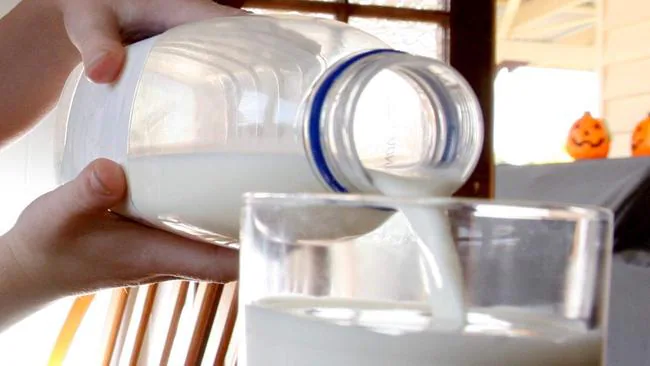
MEN who drank milk that may have been tainted with a pesticide when they were young might be more likely to develop Parkinson’s disease, a new study says.
HealthDay reports that pesticide called heptachlor epoxide was found at high levels in milk in the early 1980s in Hawaii.
While the pesticide was banned in the US around that time, many people in the pineapple industry used it.
The study doesn’t prove that the pesticide in milk caused Parkinson’s but it did show an association.

Suffers ... Muhammad Ali, who is pictured with his daughter, Maryum, has Parkinson’s disease. Picture: TwitterSource:Supplied
“This study is not a wake-up call to stop drinking milk — only 12 people who drank about two glasses of milk a day showed significant loss of neurons,” said James Beck, vice president of scientific affairs at the Parkinson’s disease Foundation. “Nevertheless, its results also suggest that low levels of a pesticide, accumulated in milk, contributed to the loss of brain cells. So a practical question to ask is if it is time to consider strategic purchases of organic foods — it may be.”
The study followed 450 Japanese-American men living in Hawaii for more than 30 years. They also conducted autopsies on them after they died.
Compared to nonsmokers who drank less than two cups of milk a day, nonsmokers who drank more than two cups of milk a day had 40 per cent fewer cells in a certain area of the brain that causes Parkinson’s, the study revealed.

Poster boy ... Michael J Fox has done a lot to advance understanding of Parkinson’s disease after being diagnosed. Picture: SuppliedSource:Supplied
The study also found residue of heptachlor epoxide in 90 per cent of study participants who drank the most milk, compared to 63 per cent of those who drank no milk.
“There are several possible explanations for the association, including chance,” Dr. Honglei Chen, from the US National Institute of Environmental Health Sciences, wrote in an accompanying journal editorial. “Also, milk consumption was measured only once at the start of the study, and we have to assume that this measurement represented participants’ dietary habits over time.”
No comments:
Post a Comment